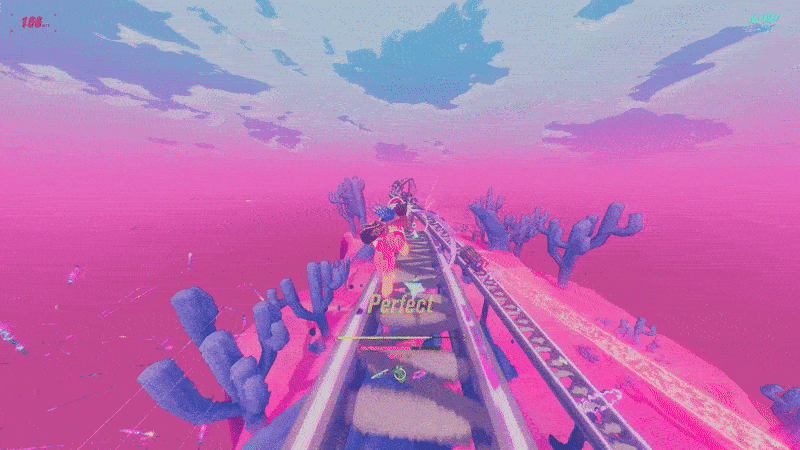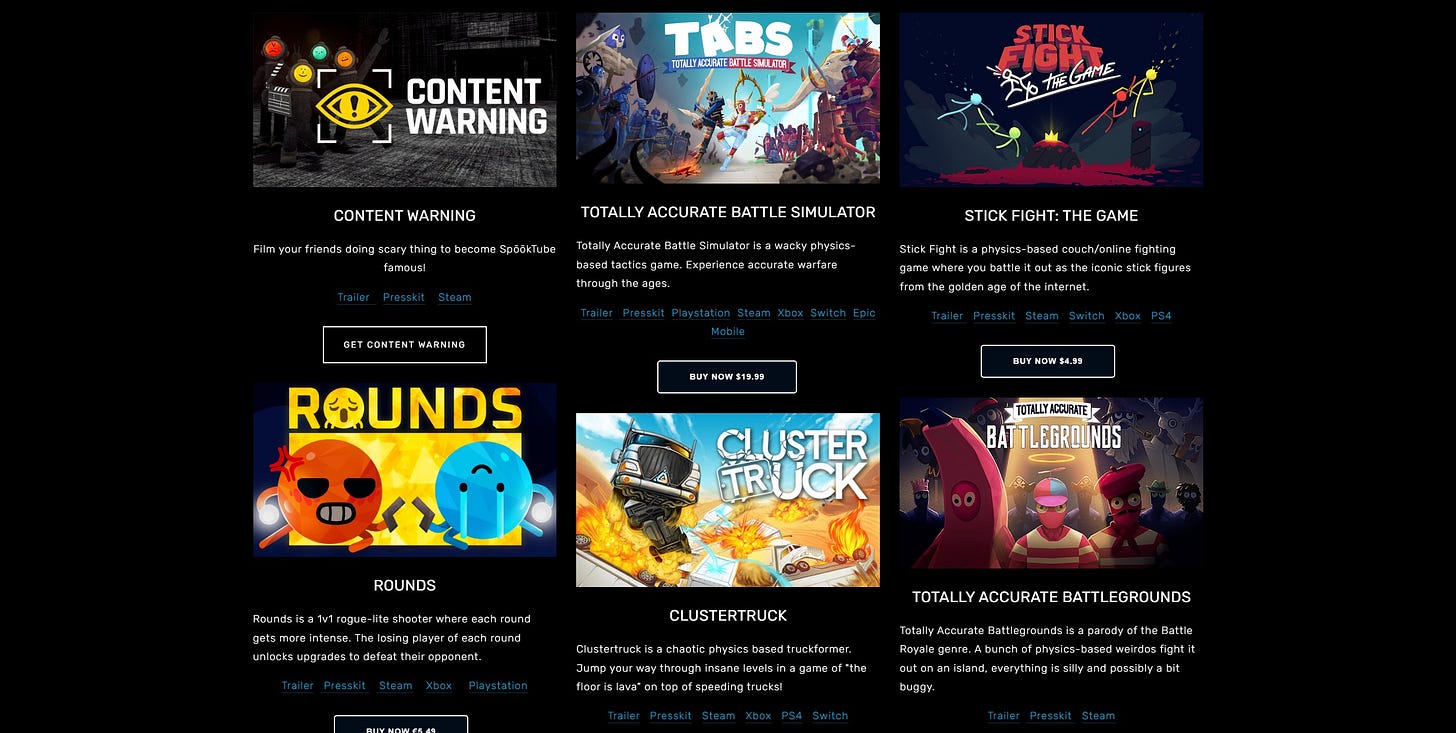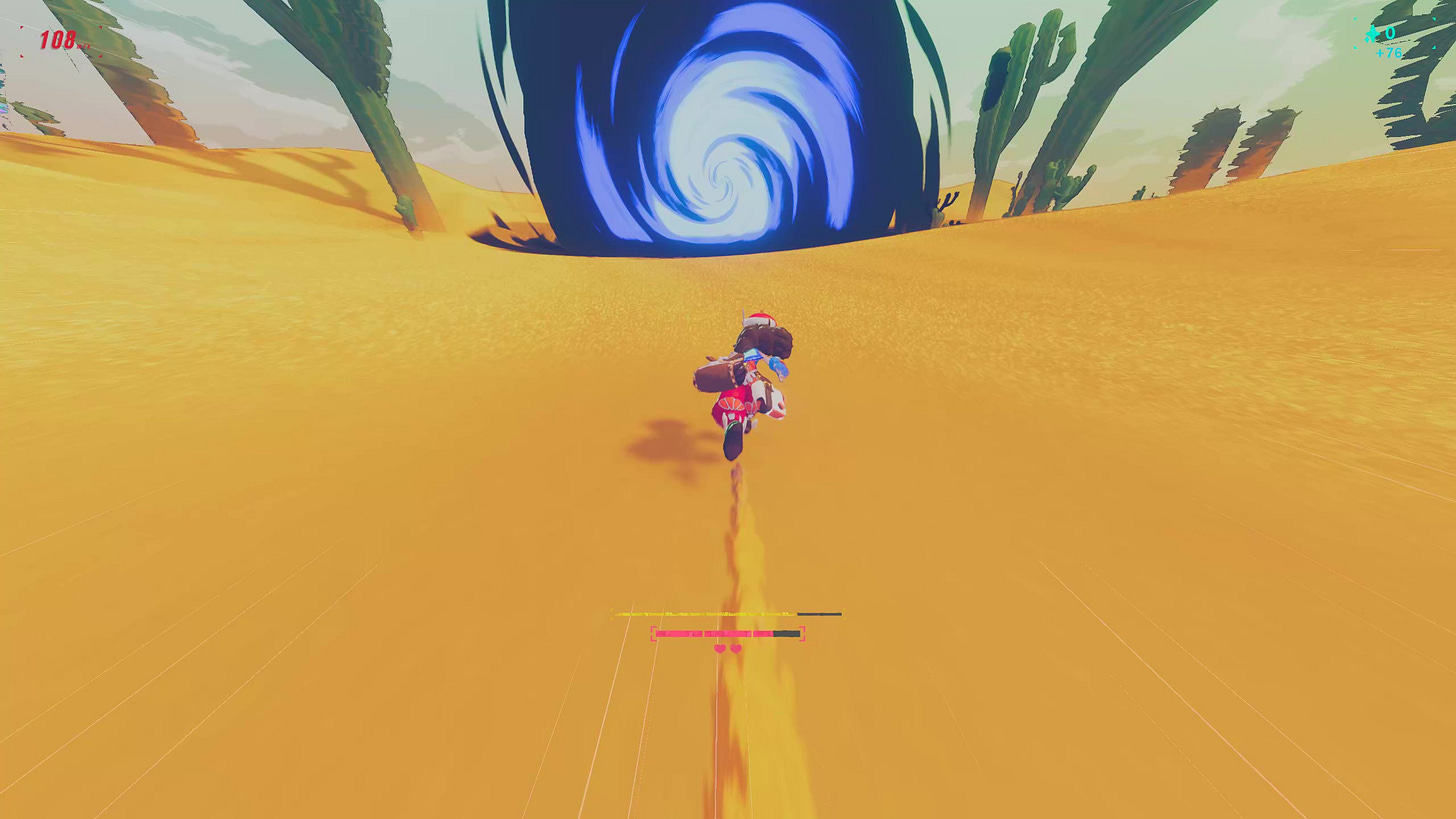Haste: Broken Worlds is a procedural roguelite running game in which mechanics consist of four main aspects: maintaining momentum and speed through perfect landings; planning a course that maximises the chance of victory when you reach the boss; creating item builds that make you as strong as possible; and mastering active items called relics.
Before you run away in fear at the sight of “procedural” and “roguelite”, give me a chance to explain why this is the best game of 2025 that you haven’t heard of. Here’s the story of my time with Haste, and how it helped me discover a promising videogame studio.
Somewhere in the beautiful city of Stockholm, Sweden, there’s a game development studio with a prescient name: Landfall. Despite being a “small studio staying small”, these creative minds have been blessing us with a panoply of games for nearly a decade now.
You might not recognise the name “Landfall” per se, but you almost surely know at least one of the seemingly endless list of titles they’ve made. In an industry in which games take so long to make that they make streaming show seasons seem to release frequently, the folks at Landfall somehow managed to make 11 games in a decade.
No art output should be measured in quantity instead of quality, but the magic of Landfall is that they can consistently do both. Their games might seem completely different from each other, but they all have at least two things in common: they’re physics-based in some way, and they seem oblivious to there being Steam ratings below Very Positive.
With that being said, and much to my dismay, I managed to remain unaware of Landfall’s existence until Content Warning came out a little over a year ago. I watched a few streams of friends playing the game, and found it quite fun, but lacked the time to try it out for myself.
Nine months after that, in the midst of the demo bonanza that comes with every Steam Next Fest, Haste showed up as recommended. It was so different from Content Warning that I didn’t realize it was the same studio. I installed Haste, the newest member of the long list of demos I was going to try throughout the week.
As is usually the case, I stopped playing most of the demos halfway through, when I’d seen enough to know if it was Wishlist material or not. When I tried Haste out, though, I completed it in one sitting, and I was left wanting more. I finished it again the next day, and added it to my Steam Wishlist, unaware of how close it was to release. So when April 1st came around, exactly a year after Content Warning’s release, I was pleasantly surprised by Steam notifying me that Haste was out.
I purchased the game as soon as I got home. Less than two months had gone by since I played the demo in February, but Landfall had somehow managed to improve it considerably. Maps were longer, the game looked better, and multiple quality of life features were added. I spent six hours running— and often flying— in Zoe’s shoes, fully enthralled by the addicting gameplay loop. The fact that I could complete an entire shard and only get interrupted by the map once quickly made me lose track time.
I proudly showed the game to my girlfriend (who rarely plays anything) and my closest circle of gaming nerds, and the conversations tended to go like this:
So, what’s the game about?
Well, it’s about running.
Hum… Okay. And is there a story?
There is a story, but I am having too much fun running to pay attention!
Sorry Haste writers, but I mean that in the best possible way (I did get the gist of the story and found the ending quite good). Narratives are an important hook for me in videogames, and usually serve as the main motivator for me to finish them. Yet I was so enthralled by Haste’s incredibly satisfying gameplay loop that I just wanted to blast from level to level, waiting for whatever challenge awaited me next at the end of a shard. No other motivation was necessary.
According to Landfall’s Press Kit, Haste took almost four years to make, with development having started at the end of 2021. They describe the game as “a high-speed third-person running game”, which is a perfect way to do so. In an era where the words like “roguelite” and “procedural” seem like PR vomit and likely turn a lot of people’s alarms on, Landfall managed to create a truly unique experience in the form of Haste: Broken Worlds.
There wasn’t a dull moment in the 14 hours I spent with the game. This was one of the rare cases in which I finished a game not wishing for something different nor satisfied with what I had gotten. What I wished for was more Haste. Thankfully, if you run into the same “problem” at the end of the tenth shard, Haste has an endless mode, allowing you to discover any items you might’ve missed, and to try out the relics you didn’t spend a lot of time with.
As is the case with seemingly all Landfall releases, Haste has been very well received, but I still want to sell it to you, so here goes:
Pros:
Haste is a zero-filler experience. Everything you do is fun, everything you do is fast. There is no downtime, unless you need to voluntarily take a breather after breaking the 200m/s barrier.
The artstyle is excellent and the game runs great on PC.
Karl Flodin, Erik Lyding, and Viggo Dyst created a masterful soundtrack that fits perfectly.
Momentum-based movement is one of the most satisfying things in gaming when done well, and Haste does it so well that Landfall made an entire game out of it.
The environments are diverse and the procedural levels bring with them different challenges.
While being very easy to understand (it is, after all, a game about running), the physics-based momentum movement is so complex to master that you will loudly cheer when you nail a full level with nothing but perfect landings.

Cons:
Boss diversity is lacking.
The difficulty had a pretty linear progression from shard one to five, seemingly stagnated from six to nine, and then spiked massively in shard ten. Would’ve loved to see a more gradual increase throughout the shards.
If you’re somehow still on the fence about Haste: Broken Worlds, the demo is still live, so no excuses. Try it out and thank me later.
It might’ve taken me ten years to see what Landfall was all about, but I’ll be playing everything they put out in the next decade.








I've been seeing a lot of good things about this game.